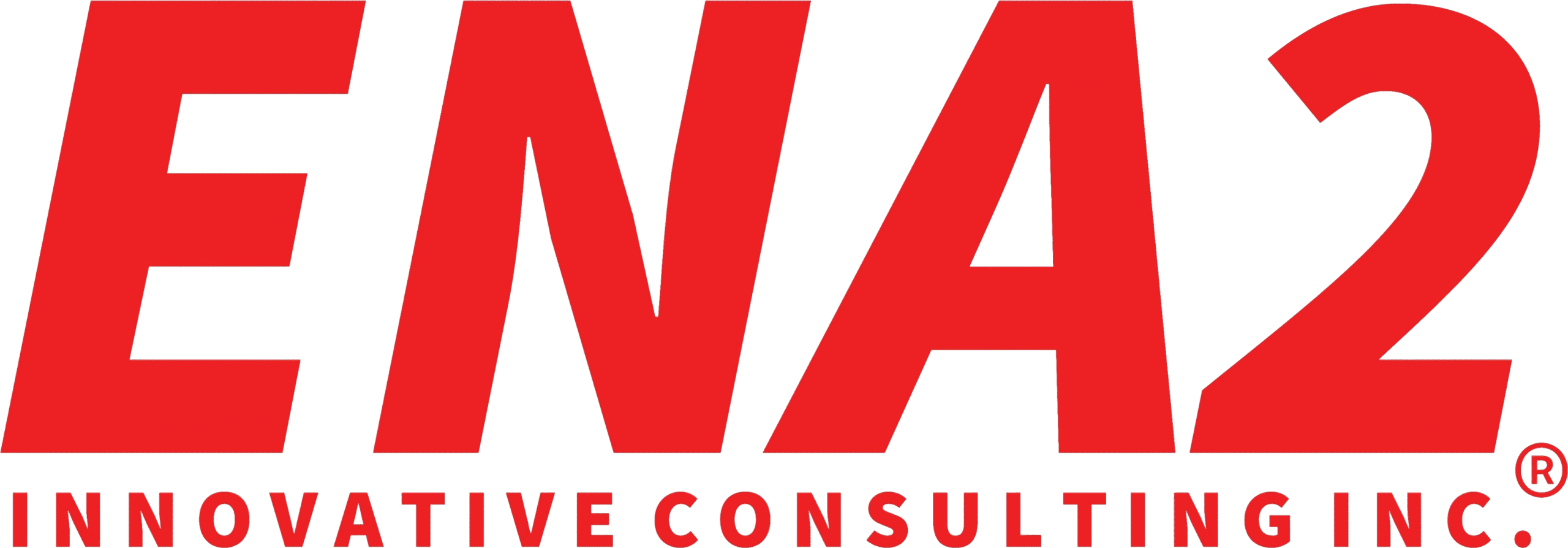XFlow is a next-generation Computational Fluid Dynamics (CFD) solution built on a mesh-free Lattice Boltzmann Method (LBM). It enables engineers to simulate highly transient, multiphase, and free-surface flows — even in the presence of moving parts and complex geometries — with unmatched speed and flexibility.
Designed for advanced CFD applications across automotive, aerospace, industrial equipment, energy systems, and lubrication-intensive systems, XFlow delivers detailed insight into performance-critical fluid interactions without the burden of traditional meshing workflows.
What Makes XFlow Unique
Mesh-Free Lattice Boltzmann Solver
- Based on particle-based kinetic theory
- No manual meshing required — automatic lattice generation streamlines pre-processing
- Tolerant to complex and moving geometries
- Fine control over resolution with minimal user input
High-Fidelity Lubrication and Multiphase Modeling
- Specialized for oil lubrication and gear churning simulations
- Quantitative predictions for wetted areas, splash patterns, and torque loss
- Supports multiphase and free surface flow phenomena
- Surface output fields for heat transfer coefficients on moving components
Wall-Modeled Large Eddy Simulation (WMLES)
- Advanced WALE-based LES turbulence model
- Captures near-wall effects with consistent eddy-viscosity modeling
- Provides high-resolution unsteady flow predictions without the complexity of RANS model selection
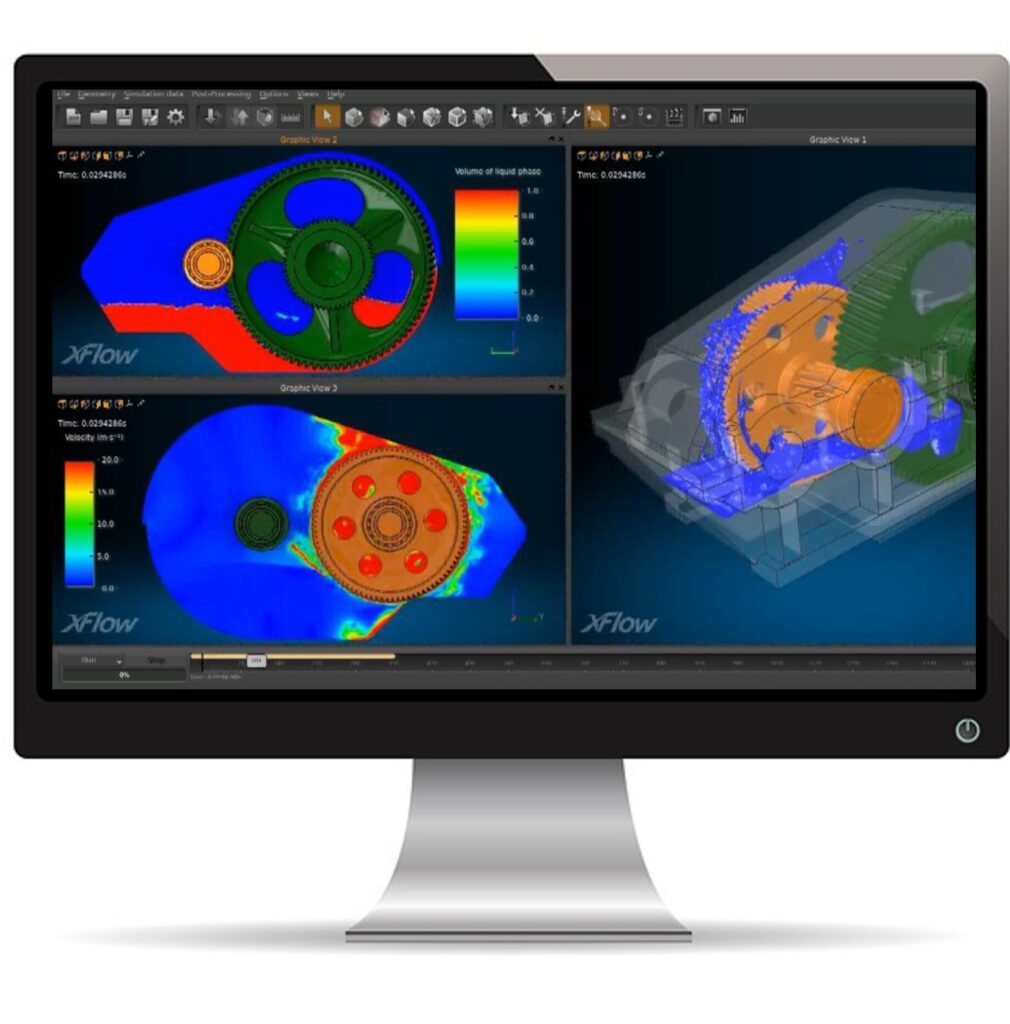
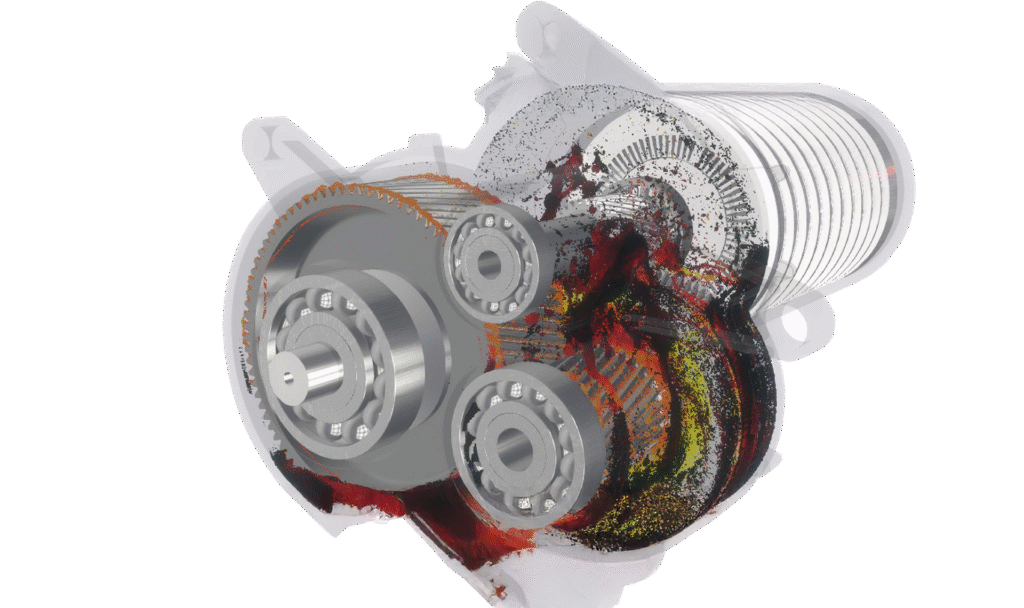
Key Features of XFlow
- Multiresolution support for performance and accuracy control
- Time-averaged and instantaneous output for scalars, surfaces, and volumes
- Visualization tools for pressure, viscous forces, torque, and flow structure
- Reduced storage footprint with customizable data export options
- Compatible with NVIDIA and AMD GPUs (Windows and Linux)
- Optimized GPU memory management for moving parts and transient flows
- Integration with SIMULIA Unified Licensing using Tokens and Credits
Engineering Use Cases
XFlow is ideal for scenarios where traditional CFD tools struggle, including:
- Gearbox and powertrain lubrication
- Splash, film formation, and churning losses
- Moving boundary flows in pumps, actuators, or cooling systems
- Aerodynamic and hydrodynamic analysis of complex or dynamic bodies
- Transient multiphase flows with interface tracking
- Thermal analysis through heat transfer coefficient mapping
How XFlow Accelerates Innovation
- Eliminates time-consuming meshing tasks
- Enables rapid simulation of design iterations
- Supports high-frequency transient analysis with moving geometry
- Provides actionable insight into fluid-structure interactions
- Reduces dependency on physical testing for lubrication and multiphase behavior
- Delivers performance scalability through GPU acceleration
Energy & Materials
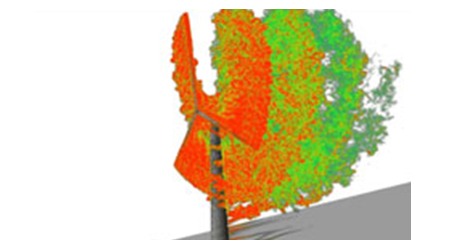
- Flow and heat transfer in wind turbines, solar towers, and wave energy converters
- Oil and gas dynamics, including free surface effects and multiphase behavior
- Wind load analysis on solar panel arrays
- Natural convection and ventilation in thermal systems
Civil Engineering and Construction
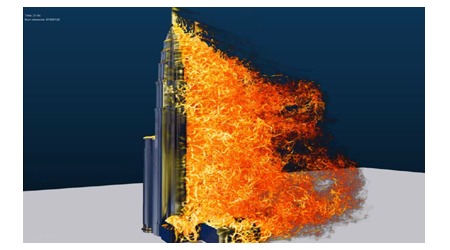
- Wind and airflow modeling around buildings, bridges, and infrastructure
- Flooding simulation in tunnels and underground facilities
- Ventilation and HVAC studies for large indoor environments
- Spillway and dam flow modeling for hydraulic structures
- Pollutant dispersion and air quality analysis in urban settings
Industrial Equipment
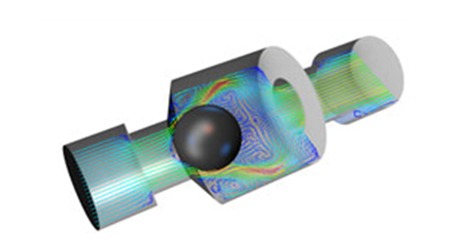
- Internal flows in valves, pumps, and rotating machinery
- CFD for mixing processes in tanks and vessels
- Thermal management of data centers and electronics enclosures
- Simulation of non-Newtonian fluids with complex rheology
Automotive and Transportation
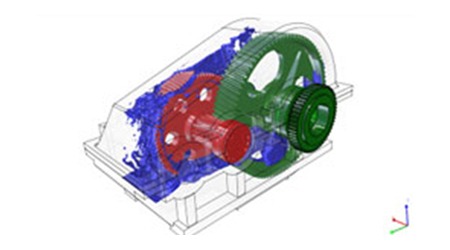
- Rotating wheel and suspension system airflow analysis
- Powertrain and gearbox lubrication simulation
- Tank sloshing and free-surface flow in moving vehicles
- External flow during overtaking and crosswind scenarios
Aerospace and Defense
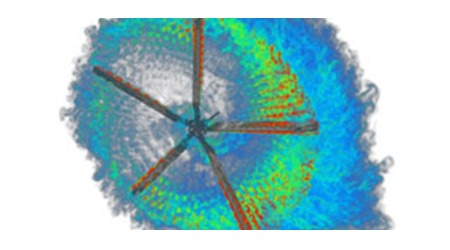
- Flight maneuver simulation with unsteady aerodynamics
- Surface load prediction on turbofans, helicopters, and wing surfaces
- Supersonic and transonic flow modeling
- Simulation of landing gear deployment and moving control surfaces
Marine and Offshore
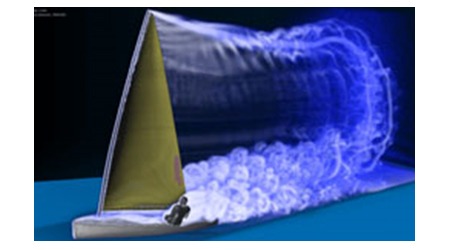
- Hull fluid dynamics and resistance prediction
- Simulation of wave propagation and interactions
- Sloshing behavior in ship tanks or offshore vessels
- Sailing performance evaluation and maneuvering dynamics
